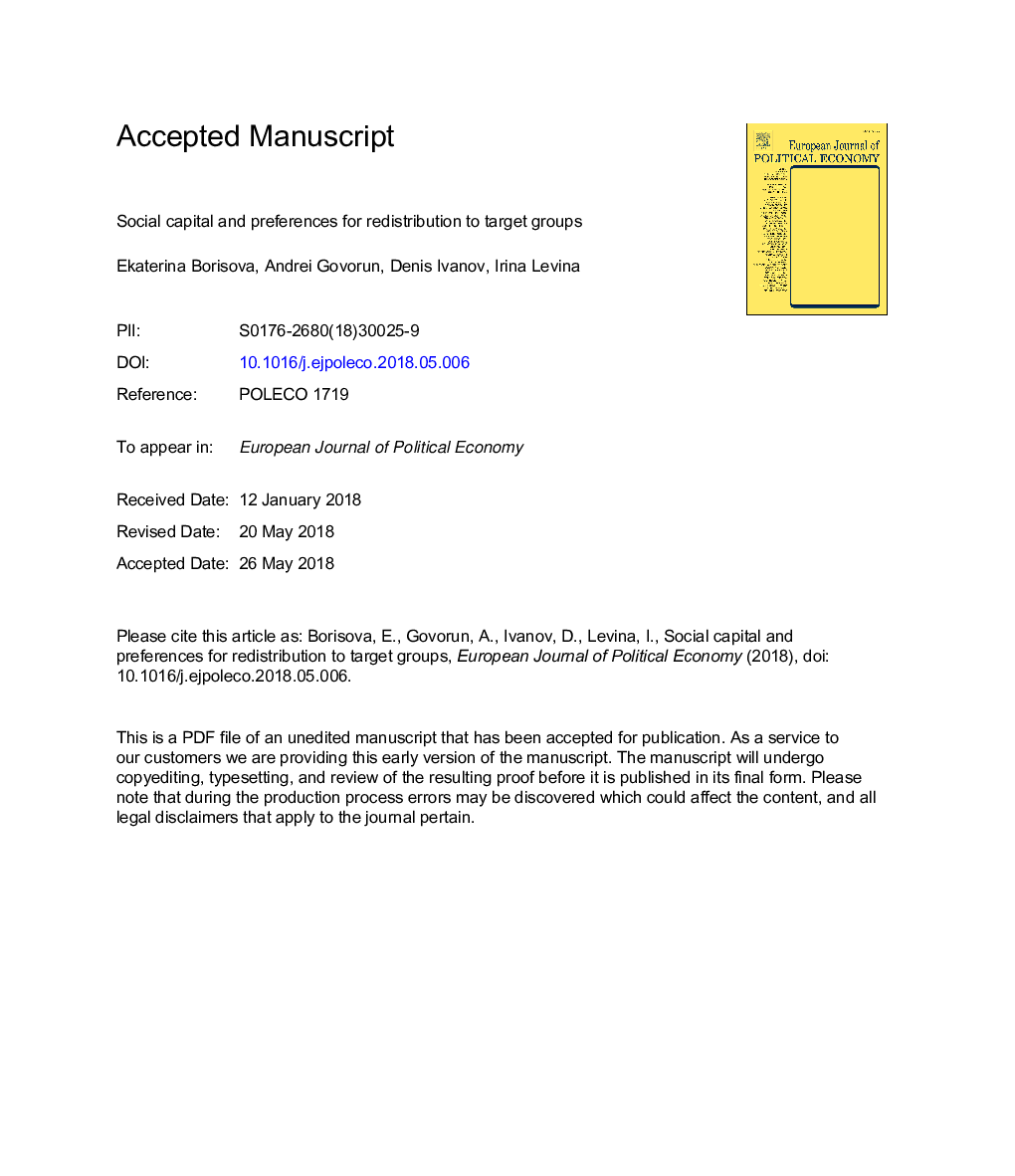| Article ID | Journal | Published Year | Pages | File Type |
|---|---|---|---|---|
| 11016152 | European Journal of Political Economy | 2018 | 30 Pages |
Abstract
We empirically study how social capital influences individuals' preferences for redistribution to target groups using unique surveys of approximately 34,000 individuals across 68 Russian regions in 2007 and 2011. There is a positive relationship between social capital and support for government redistribution based on objective verifiable criteria. We interpret the results in terms of the perceived likelihood of cheating. Benefits to the 'needy' are at greater risk of being diverted to nondeserving claimants compared to benefits for which there are objective criteria, such as merit, being retired or disabled, or having many children. Our results show that when there is higher social capital in a region, there is also less tolerance for the possibility of cheating by recipients of government income transfers.
Related Topics
Social Sciences and Humanities
Economics, Econometrics and Finance
Economics and Econometrics
Authors
Ekaterina Borisova, Andrei Govorun, Denis Ivanov, Irina Levina,
